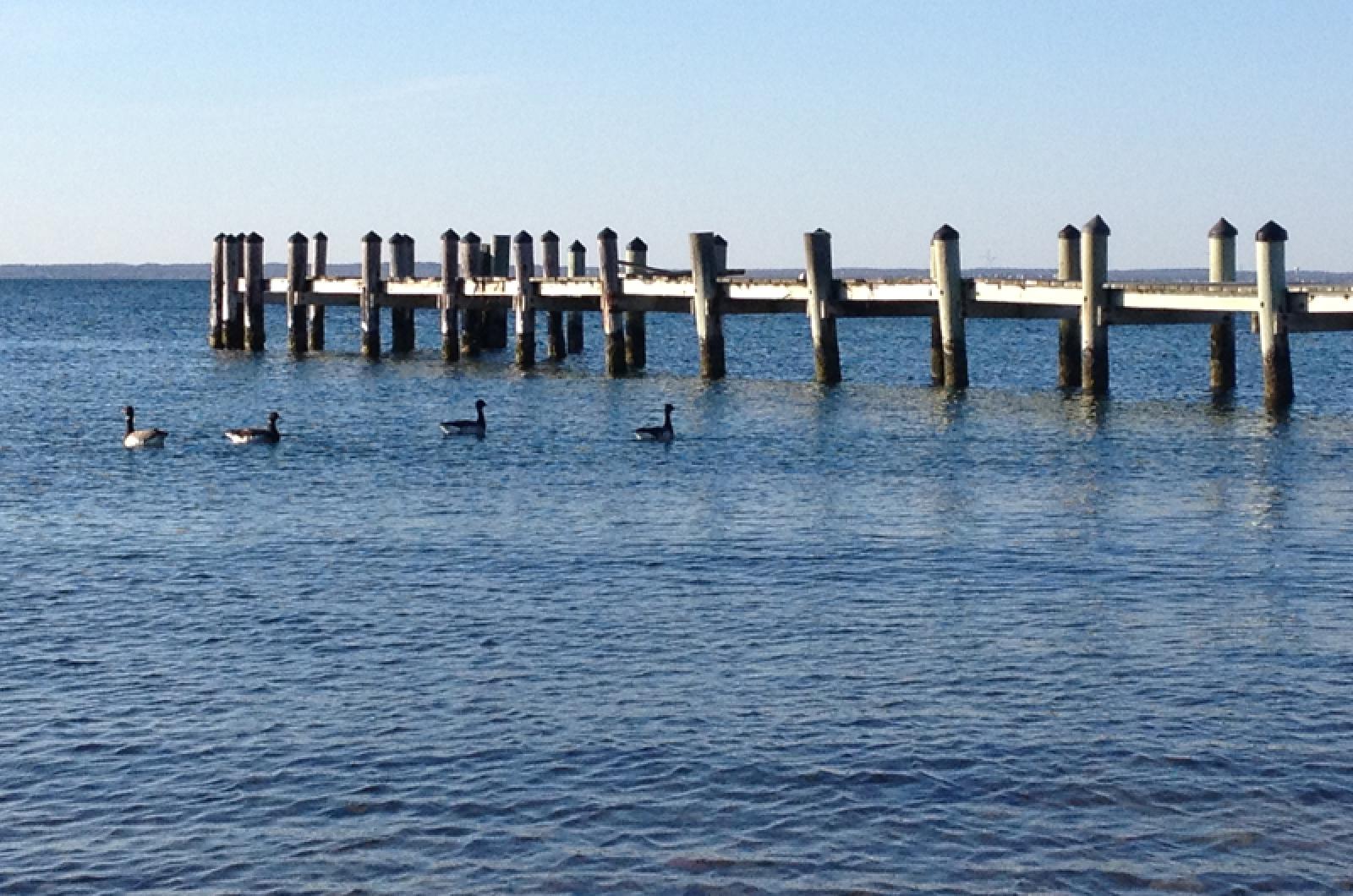“You know, I used to live there,” I told my in-laws after they mentioned hoping to visit Martha’s Vineyard during a New England vacation.
So many memories washed over me. Stopping to swim in the sound on the way home from work each August day. The ferries that without fail made me queasy. Running the trail at Fulling Mill Brook. That lady Virginia who sang Material Girl each week at Season’s karaoke night. A bay scallop melting in my mouth.
The conversation moved along, but I didn’t. I drifted into daydreams of Morning Glory carrot nut bread and Lucy Vincent when the vacationers left her to us each winter.
I came to Martha’s Vineyard in May 2001, two days after graduating from The University of Virginia. I drove off the ferry in Vineyard Haven in driving rain and struggled to navigate Beach Road to Chapaquiddick where a bedroom in the home of a stranger awaited me.
I had seven dollars in my purse and the promise of a paycheck after my first full week as a cub reporter at The Vineyard Gazette. I felt unbelievably lucky.
I had put stringent parameters on my job search. While friends moved to New York and D.C. for consulting gigs, I had determined to move to a small community with a strong, family-owned newspaper. At 22, I believed the purest of journalism happened at newspapers where the owner would have to see the police chief he’d criticized in ink that morning at the grocery store that evening. Even in 2001, pickings were slim. I sent clips and a resume to the 50 or so small, locally-owned papers I could find.
Dick Reston called that March. The Restons owned The Gazette and Dick ran it. His was the first and only call from prospective bosses.
If you know any journalists, you can attest we are gypsies. Our home is movement, the unexpected possibility. I came to the Vineyard hoping to explore and learn and grow. I found so much more. I found a rhythm for my movement.
The Gazette was an anchor for the dreamer I’d become. Dick and his eventual successor hammered me to stretch and reach and push in my work. Dick would beckon me into his corner office for long chats about the meaning of the Island’s trash predicament or the affordable housing crisis. John Walter littered printouts of my stories with red ink and ordered me to write in a way that put the readers where I’d been. Julia Wells and Mark Alan Lovewell coached me about the weight of a story. Never again, they warned, would I write about things that mattered so intensely to readers.
I left the Island in the summer of 2004. I’d written my share of stories about the fair and farmers’ market and fights over mansions slated for fragile land. I had chronicled the Island’s struggle to keep its young and middle class as even the most modest of homes were out of their reach. I wrote about fish and water and trash and mushrooms and skunks. This gypsy needed to move.
I landed at another beloved newspaper — The News & Observer in Raleigh, N.C. By then, its family owners had sold to a newspaper chain, but many of the staff remained.
So many of them are now gone. As the economy rocked the nation in 2008, newspapers lost their footing. Ten rounds of layoffs have stripped the N&O. I’m too stubborn to go voluntarily and too smart to forfeit the chance to tell good stories.
Now, I litter my own copy with red ink, stripping the articles of the jargon and imprecision I know would have made John Walter crazy. I find myself in Reston-like musings, pondering the meaning of it all.
Sometimes, I remember that 22-year-old gypsy the Island shaped. I think about the richness of being poor in a place where Mother Nature is stunning enough to be your entertainment. I hear Lovewell shouting with delight when an old source calls to tell him about a fish he caught. I see the standing ovation that meets the sun each evening in Menemsha.
I think about the weight of a story. The punch that 20 inches of ink can pack. How a fish tale is always so much more.
Mandy Locke is an enterprise and investigative reporter for the News & Observer.




Comments
Comment policy »